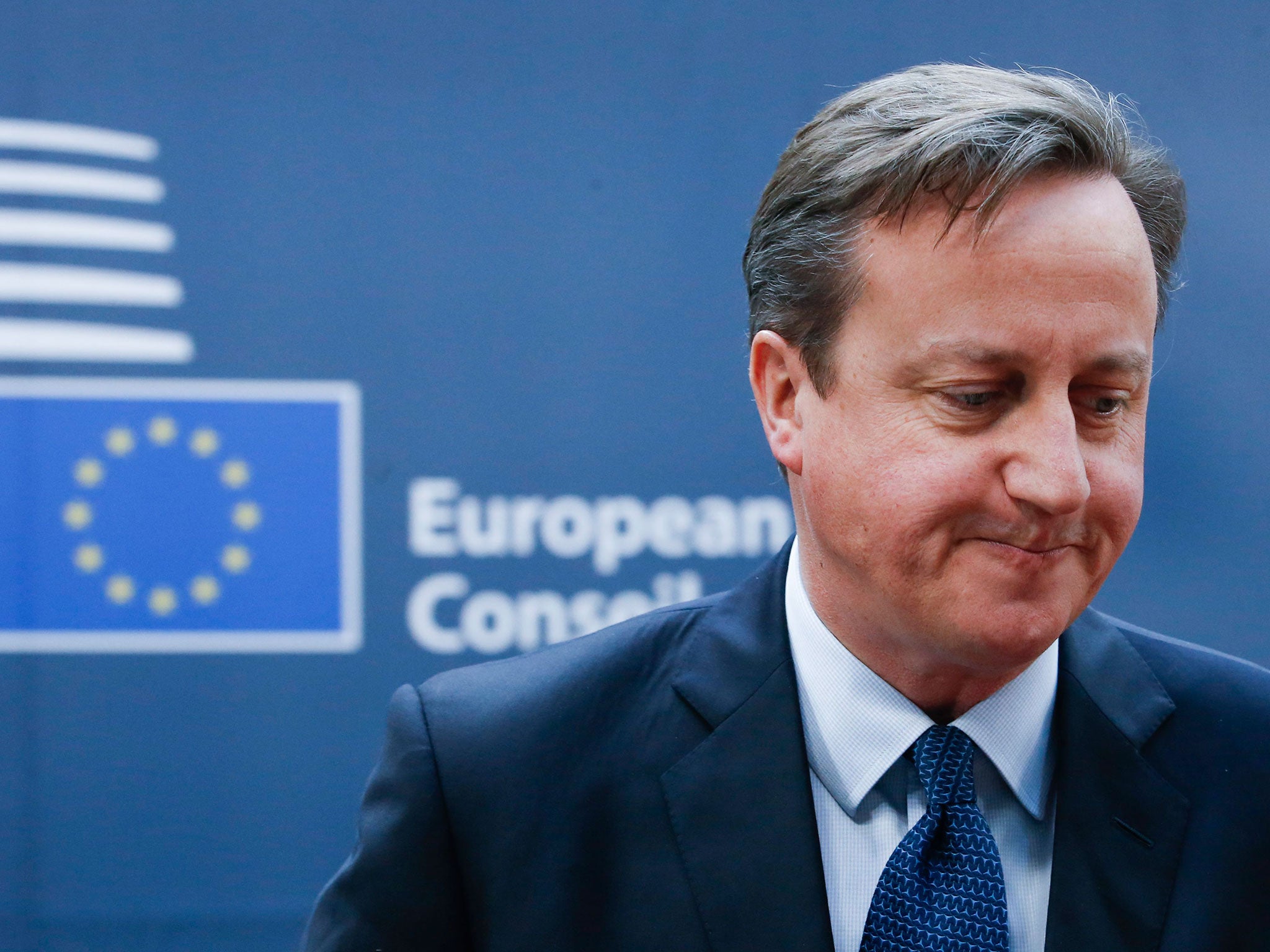David Cameron's trip to Brussels was a waste of time - British voters have made up their minds about Europe
Whatever the Prime Minister achieves, our polls show that Britons don't believe that he's able to make much difference to Britain's relationship with Europe

Your support helps us to tell the story
From reproductive rights to climate change to Big Tech, The Independent is on the ground when the story is developing. Whether it's investigating the financials of Elon Musk's pro-Trump PAC or producing our latest documentary, 'The A Word', which shines a light on the American women fighting for reproductive rights, we know how important it is to parse out the facts from the messaging.
At such a critical moment in US history, we need reporters on the ground. Your donation allows us to keep sending journalists to speak to both sides of the story.
The Independent is trusted by Americans across the entire political spectrum. And unlike many other quality news outlets, we choose not to lock Americans out of our reporting and analysis with paywalls. We believe quality journalism should be available to everyone, paid for by those who can afford it.
Your support makes all the difference.As David Cameron returns from another journey to Europe to renegotiate Britain’s membership of the EU, are his efforts registering with the public? The short answer is, not really. The British public is simply not excited about the European Union: only one in 10 see it as the biggest issue facing the country. The bosses of the FTSE 500 see it as the issue – along with a large faction of the Conservative party – but the public is unmoved, despite record levels of concern about immigration.
Looking at the polling data, Cameron’s lonely trek round European capitals seems rather pointless: 68 per cent believe he will campaign for Britain to stay in the European Union whatever happens, and there is little confidence that he will get a good deal for Britain in his negotiations. Only one in three (34 per cent) of us are confident he can obtain any positive change. Even among Conservative voters, who are generally positive about the Prime Minister, only just over half (53 per cent) think he will make much progress.
Nevertheless, as he goes through the motions of getting a new deal for the UK, Cameron also knows the public are likely to agree with him in the end.
Over the autumn there has been no significant change in where the public stand on Britain’s membership of the EU. Around half of us – albeit somewhat grudgingly – favour of Britain staying in the EU (53 per cent), while only 36 per cent want to “get out”. When we ask them the actual question to be posed as the referendum we get very similar answers.
So whatever Cameron does or doesn’t achieve in Warsaw, Berlin, Rome or Paris may not matter much. It’s more for party management and the ‘awkward squad’ than it is about appeasing voters.
Just how low profile the matter of Europe is for the general public was highlighted by an experiment in which we asked a question about letting 16 and 17-year-olds take part in the EU referendum. The public’s views vary dramatically depending on how the question is asked.
When asked if they support or oppose “giving 16 and 17 year olds the right to vote” in the referendum, half (52 per cent) supported the idea and 41 per cent opposed it. However when asked if they support or oppose “reducing the voting age from 18 to 16” for the referendum support for the proposal drops to 37 per cent, with 56 per cent opposing. This is an excellent reminder of how much question wording can affect responses on issues that the public are not exercised about, and also the likely status quo.
That is what happens more often than not in referenda, as we saw in Scotland last year: people vote for the status quo.
When the public eventually vote on Europe, things may have changed – but, if they do, it will not have been because of what the Prime Minister achieved in this week’s negotiations.
Ben Page is Chief Executive of the polling organisation Ipsos MORI
Join our commenting forum
Join thought-provoking conversations, follow other Independent readers and see their replies
Comments